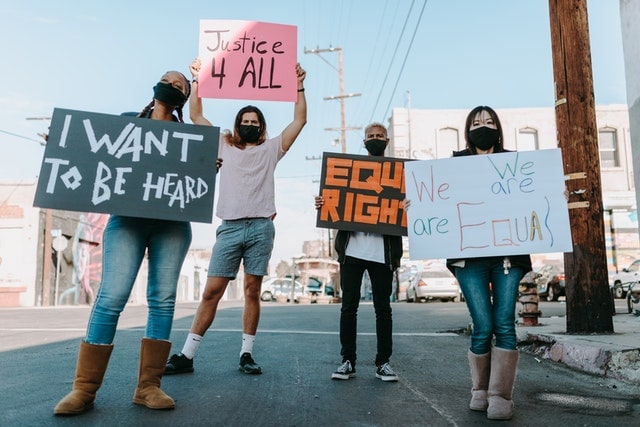Everyone involved in a legal case has the right to look for justice family lawyers and understand the law. The reinstatement of fairness in the view of the law is legal justice’s simple definition. In this situation, the law provides a collection of uniform guidelines as an impartial standard for morality.
Justice, family lawyers, and the law all focus on delivering what’s right regardless of a person’s social status. Violation of the law can and will result in punishments depending on the degree of injustice committed. For instance, domestic violence is a very serious family law issue. Unfortunately, it is still widespread and the relatively high cost and its unequal accessibility to legal justice.
That’s why justice, family lawyers, and the law defend and set out their rights during court proceedings. Family lawyers uphold justice and the law in order to set out what’s right whether it’s for plaintiffs or defendants. Plaintiffs are the people who file a legal action, while defendants receive those claims. This article highlights the importance of justice, family lawyers, and the law.
Justice, Family Lawyers, and the Law: Access to Justice
Access to justice enables people to seek and obtain a solution through formal or unofficial justice institutions. However, marginalised groups don’t have access to justice due to fear of the system and its inaccessibility due to costs. Access to justice entails:
- Legal awareness and information about justice, family lawyers, and Australian legislation like the Family Law Act 1975;
- Legal advice;
- Adjudication (the formal judgement on disputed matters); and
- Enforcement.
Society also deserves to access justice family lawyers for their legal matters. This includes respecting and approving the rights of everyone. Social justice makes sure that resources are distributed equally within a community in order to address injustice. This also includes countries and states that provide social justice to ensure that every person has equal rights on:
- Health care;
- Employment;
- Education; and
- Housing.
However, not all people have the privilege to afford these rights, especially for discriminated and marginalised communities. These people are discriminated against because of their ethnicity, status, gender, residence, socioeconomic backgrounds, and disabilities. Social justice ensures that these factors are addressed. Australians may also find it difficult to have access to justice if they have:
- Low Levels of education and literacy;
- Language problems;
- Financial constraints;
- Inadequate accessibility;
- Access to digital technology and information;
- Prior traumas, reluctance to participate in legal proceedings; and
- No knowledge of one’s rights and of resources available for counsel or assistance.

Who Are in The Marginalised Section in Australia?
A lot of individuals and communities continue their traditions and culture like any other country. In Australia, Aboriginal and Torres Strait Islanders have unique rights that are outlined in international law. The United Nations Declaration on the Rights of Indigenous People presented its formal support to them in 2009. Here are some key improvements for the Aboriginal and Torres Strait Islanders.
- Homeownership increased to 39.6 per cent in 2016, compared to 33 per cent in 2001
- In 2018–2019, 49 per cent of individuals aged 25–34 had a certificate III level or higher certification, up from 28 per cent in 2008.
- In 2016, 3,708 persons held a postgraduate degree, compared to 682 in 2001.
- Life expectancy increased to 71.6 years for males and 75.6 years for females, compared to 10.6 years for males and 9.5 years for females in 2010-2012.
Aboriginal and Torres Strait Islanders know what is best for their communities. Thus, the impact of social justice reforms ensures that their voices are heard. This also results in them enjoying their rights to good health and self-determination. Whether indigenous or not, justice, family lawyers, and the law defends and ensures that all kinds of people receive equal rights and opportunities.
Justice, Family Lawyers, and the Law: Standards Of Social Justice
Human rights
Australia’s family law system is in fact getting more complex and needs to serve a wider range of clients. Hence. It’s important to highlight how the law protects the human rights of family members, particularly victims of domestic violence.
Equity
Equity is a critical step in achieving social justice. Importantly, equity ensures that everyone has equal access to opportunities, resources, and services. However, equity does not imply that everyone experiences the same things. To ensure that everyone has equal access, this may involve providing enough resources and assessments according to each person’s various needs and situations.
Diversity
People have the right to take part in decision-making in a manner that aligns with them like the Aboriginal and Torres Strait Islander Peoples. Since we are aware of the needs of our own communities, social justice encourages everyone’s participation in leadership and decision-making.
Access to resources
People should have equal access to resources. A social justice approach should alter how people can access resources according to their unique needs in order to promote equity. Some of these resources are legal advice and access to a lawyer’s affordable rates when legal matters arise.

Importance of Seeking a Family Lawyer’s Advice
Family law matters are difficult to handle without guidance. Thus, it’s important to seek a family lawyer’s advice since they have the experience to uphold justice. These lawyers not only provide the best legal counsel but also help when their clients need emotional support.
It’s true that most people find it difficult to understand the laws behind family law. That’s why JB Solicitors can step in and help clients approach family law matters with ease. Our family lawyers believe that justice is important in family law cases. Our experience in family law includes matters about:
- Divorce and separation
- Child custody and child support
- Property settlements
- Using apprehended violence orders (AVOs) against violent individuals
- Binding financial agreements
- Wills and estate planning
We also have mediation services for parties who don’t want to opt for expensive court procedures or trials. This method helps disputed individuals/parties form their own agreements and resolutions that best suit their interests. All of our services above come at an affordable fixed fee price if clients have financial constraints on their end.
Contact us today for your family law matters.
